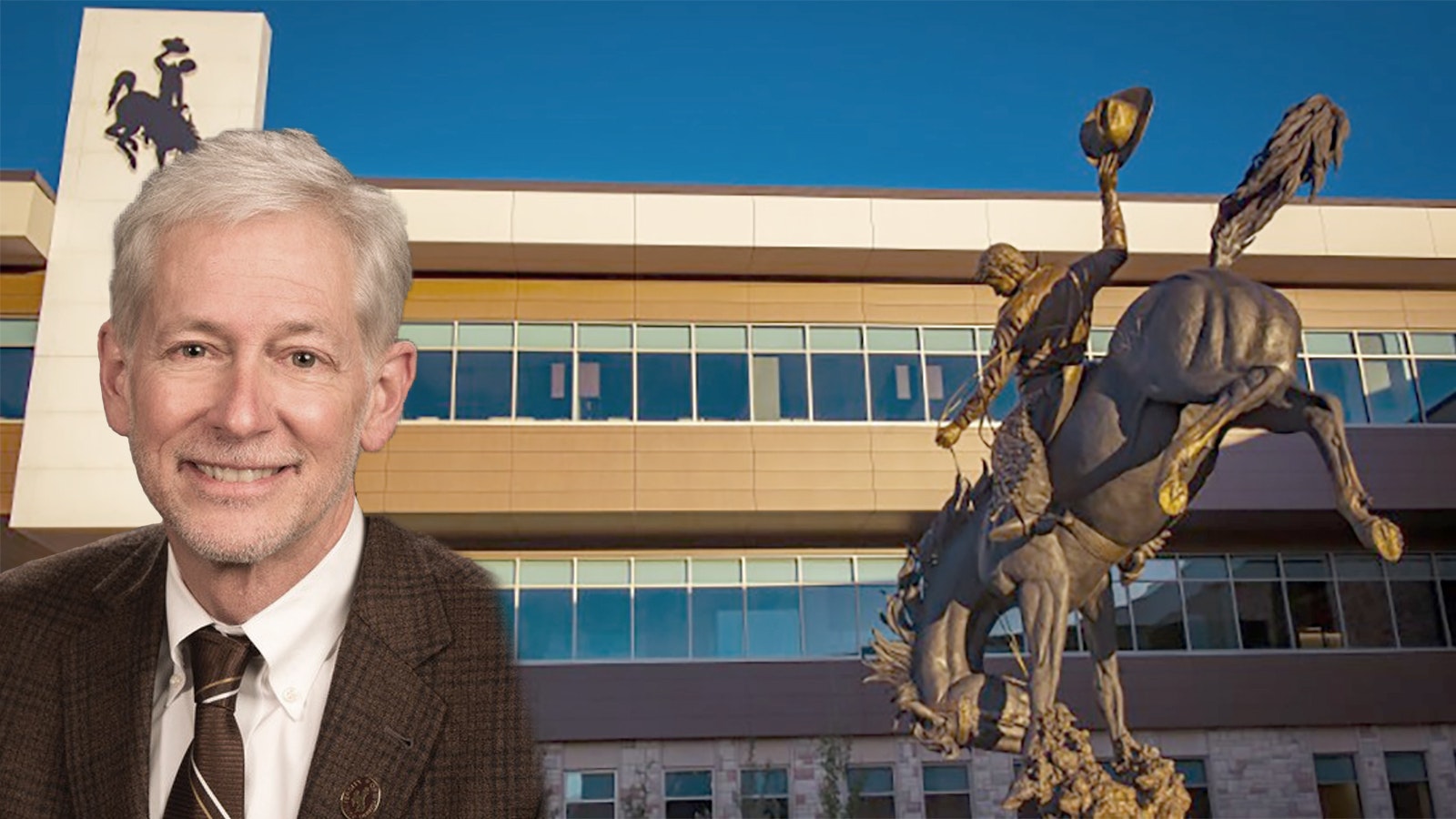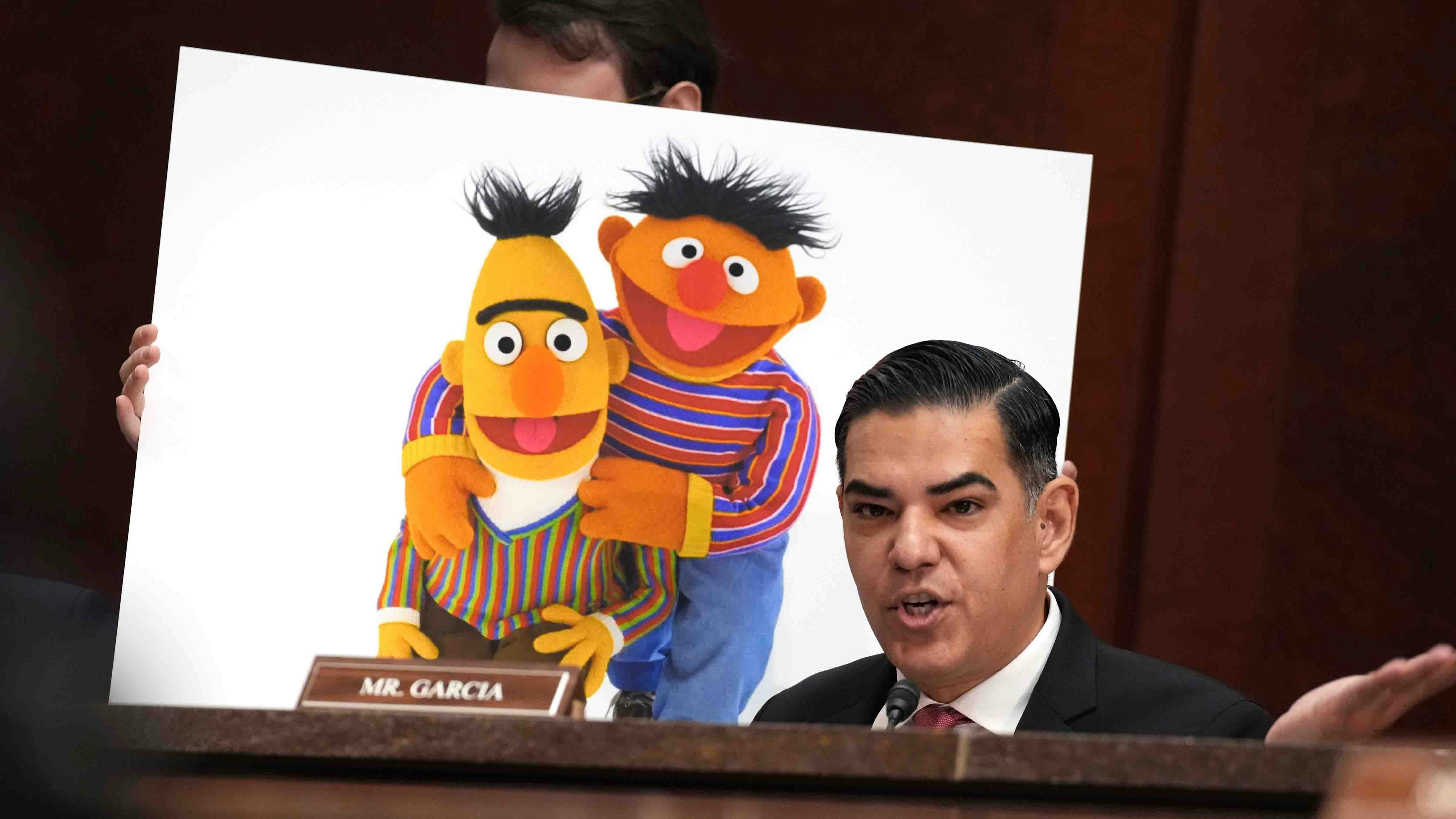The University of Wyoming has become a target for many conservatives in Wyoming with claims the university is embracing and promoting “woke” culture and curricula, as well as LGBTQ-friendly policies.
UW President Ed Seidel told Cowboy State Daily on Tuesday afternoon that although he doesn’t relish the attention, he’s glad the university is on people’s minds and finds the pushback “healthy.”
“It’s kind of a sign of our times,” he said, adding that politically in the Cowboy State, “there’s a lot of polarization.”
In recent years, the school has expanded its curricula on LGBTQ+ subjects and areas of study, drawing heat from those in the state who oppose public tax money being used to fund the teaching of these subjects.
Seidel said he stands behind UW teaching these subjects in the face of building political and public pressure, and that the university needs to be a safe, inclusive place for students and staff.
“We support people who have many different viewpoints, and we certainly support the needs of our students in our state,” he said.
The university has drifted more into the political sphere in the last year because of a few events high-profile controversies and disputes in the backdrop of the nation’s ongoing culture wars.
Culture Clash
Controversies are nothing new on the University of Wyoming campus. In 1969, 14 African-American players were kicked off the football team for requesting to wear black armbands in a showing of solidarity against racist policies initiated by Brigham Young University. In 1998, Matthew Shepard, a gay student at UW, was brutally murdered outside Laramie.
Many of the UW campus debates have become platforms for discussions on rising costs of tuition and admission policies related to student diversity. Others reflect wider societal schisms, such as divisions over sexual assault, what’s been termed by conservatives as “woke” culture and political correctness.
Two of the most divisive UW controversies that have generated national headlines recently are efforts to defund the university’s gender studies program and an ongoing lawsuit involving a sorority on campus that accepted a transgender member.
Last May, U.S. Sen. Cynthia Lummis was booed for remarks she made at a UW commencement ceremony that there are only “two sexes.” She later apologized for the remark.
In December, the University suspended a Laramie church elder’s ability to reserve table space in its student union for a year after the man posted a sign that called out the transgender sorority member by name.
That student was then targeted again this spring when seven members of the sorority sued the organization for accepting a transgender member.
Seidel didn’t say much about the merits of the lawsuit and that UW administration is “letting that play out.”
He also said that ensuring safety for all involved is the school’s focus.

Free Speech Issues
One overarching dispute in nearly all these debates is what kinds of speech is allowed on campus and what’s not.
Seidel said a college campus is a natural place for discussions on free speech and other fierce debates, and that the University of Wyoming isn’t an exception to that.
“University campuses are places where lots of different views are expressed, and it gets people’s attention,” he said. “And I think it’s very natural.”
Although the University of Wyoming is a land-grant institution, which means it typically places a larger focus on agriculture and technical education, Seidel said it also has a more broad responsibility to teach a wide spectrum of educational issue because it’s the only university and major four-year school in the state.
“We’re a university that really has to offer everything,” he said. “That is because students have no other opportunity, in at least they go to university in the state of Wyoming.”
‘Truth Doesn’t Have A Political Party’
Seidel came to UW after working for the University of Illinois in various roles for six years.
His professional background is in math and science. He has a Ph.D. in astrophysics from Yale University and a master’s from the University of Pennsylvania. Over the course of his career, he has taught science and math subjects and worked professionally within the field.
Seidel said he believes UW now has, and should always take, a neutral stance on political causes and that it has no agenda, although it does take input from many residents.
Although this position may seem rather vanilla on the surface, some in a state like Wyoming, which has an overwhelming Republican political presence, he said he understands the argument many have made, including some state lawmakers, that the school should offer courses of study that directly reflect the political leanings of Wyoming.
Seidel disagrees with this viewpoint, however, and said it’s important for students to be exposed to many different views and values, liberal and conservative.
“The truth doesn’t have a political party,” he said. “We want to go straight forward in any direction that knowledge wants to take us.”
He cited the school’s 2023 Strategic Plan, which was created with input from hundreds of stakeholders over the course of many meetings, to help guide the curricula taught at the school.
The plan includes the values of providing access to an affordable, high-quality education, a real-world education where students learn by doing, a welcoming and supportive learning community fostered by integrity, inclusivity, freedom of expression, and respect, and fostering an environment of growth, health and leadership capacity for all members of the university community.
Seidel said he finds the integrity, inclusivity, freedom of expression and respect to be particularly important.
“That’s in our values of our Strategic Plan and it’s front-and-center of who we are as a university,” he said.
Community Reacts
In September, the University of Wyoming’s Multicultural Affairs Center announced a partnership with LGBTQ advocacy group Wyoming Equality to provide gender affirming workshops, covering a range of topics, including flattening breast tissues and hormone replacement therapy and hormone blockers.
The school’s United Multicultural Council hosted a drag show April 22 in coordination with the school’s Shepard Symposium on Social Justice.
During an April “UW in Your Community” program in Cody, some attendees left fliers on cars parked outside drawing attention to these events and telling people to contact Seidel and ask him why University money is being spent on “perversion and fetishes.”
“We need a University that serves the needs of our state residents, not the woke culture!” a part of the letter reads.
Seidel also has received some heat from pro-life organization Wyoming Right to Life for participating in a Laramie Reproductive Health fundraiser in February. This organization provides contraceptives and counseling about options, including abortion, and pregnancy.
Wapiti resident Scott Weber attended the Cody event and said he confronted Seidel about some of the recent issues at the school, including the sorority lawsuit. He described the school’s student union as a “gauntlet of queerness.”
“He frowned and said very little,” Weber said about the UW president’s response. “I said I wanted those gender classes out of there and that UW was a land-grant university and not a Boulder or ‘Bozangeles’ or Berkley.”
Weber, a UW alumnus, said he wants the university “cleaned up” or he won’t donate any more money to it.
The Legislature Reacts
During the 2023 session of the Wyoming Legislature, some lawmakers tried and failed to defund the University’s Gender and Women’s Studies program, arguing the program runs against the intentions of the university founders when it was formed.
This was a follow up on a similar effort made during the 2022 session, where the University’s right to autonomy was discussed.
House Speaker Rep. Albert Sommers, R-Pinedale, spoke against the proposal, expressing a deference to the university on the subjects UW chooses to teach.
“I think it’s appropriate for the university to have the studies they deem necessary, that they deem important,” he said.
Although admitting there aren’t many students who major or minor in the gender studies programs, Seidel said they are attended by a “sufficient” number of students who deserve the option. He said the school constantly reviews its attendance metrics.
“If classes are in low demand, then we think about not offering those courses anymore,” he said.
The Courses
Students at UW can earn a major or minor degree in Gender and Women’s Studies. They also can receive a minor in Queer Studies. None of these classes are required.
The undergraduate program includes courses titled:
• Intro (to) Gender & Women’s Studies
• Introduction to LGBTQ/NS Studies
• Gender, Race, Sex & Social Systems
• Feminist Theories
• Queer Theory
The Queer Studies graduate and undergraduate programs offer many courses including:
• Intimate Relationships
• Pop Music & Sexualities
• Minority Sexual/Gender Identity Issues in Education
Deciding Curricula
One of the biggest goals Seidel has for the University is to improve the ability of graduates to find jobs in their fields of study and to keep them in Wyoming after they graduate.
But this goal does not align very closely with UW’s support of the Gender and Women’s Studies degrees, which do not correlate directly to many professional opportunities in Wyoming.
Seidel said that deciding on courses of study is a true balancing act.
“We want to reduce that number (students leaving the state) by increasing the opportunities for students here, but we want our students to be successful anywhere they go,” he said. “It’s not just what’s happening in the state of Wyoming, but it’s about what happens around the country and around the world because those forces come in as well.”
He mentioned the growing influence of artificial intelligence as two burgeoning fields that may not be prevalent in Wyoming yet, but are still worth teaching.
He also said many students will pursue multiple majors and minors, with Gender and Women’s Studies accompanying a degree they end up using for their professional careers.
Controversy Is Worthy Of Study
Seidel said the fact that many Wyoming residents question the teaching of these subjects gives them legitimacy to be taught.
“The fact that the question is being asked, both here and nationally, indicates to me that it’s a topic worthy of study as a social science,” he said.
Seidel said the school must take a holistic, worldwide view to the curricula it offers. He also pointed to the fact the school engages a rigorous stakeholder process for any course before it’s offered.
“It’s a global world that our students are entering,” he said. “It’s not just the state of Wyoming. In fact, many of our students do leave the state.”
Free Speech Committee
A similar process is being pursued by a new committee establishing guidelines for free speech on campus.
Seidel said the committee has engaged perspectives from all walks of the political spectrum on this effort, including U.S. Rep. Harriet Hageman, R-Wyoming, and former state legislator Eli Bebout.
Seidel said he considers free speech issues every day and wants UW to take a leadership role in addressing those issues across American campuses.
“It’s central to any university, worth its salt anyway, that it really cultivates free speech,” Seidel said.
That said, multiple legal experts have opined that the school violated the church elder’s First Amendment rights when it suspended his tabling privileges.
Ultimately, Seidel believes the university is a school that focuses more on any other field than the study of energy.
He mentioned the recent developments UW has made into the study of alternative and nuclear energies, and a recent conference it hosted with members of the U.S. Department of Energy.
“It’s not just our interest, but our responsibility to continue to support energy and we’ll keep doing that,” Seidel said.
You can reach Leo Wolfson at Leo@CowboyStateDaily.com.





